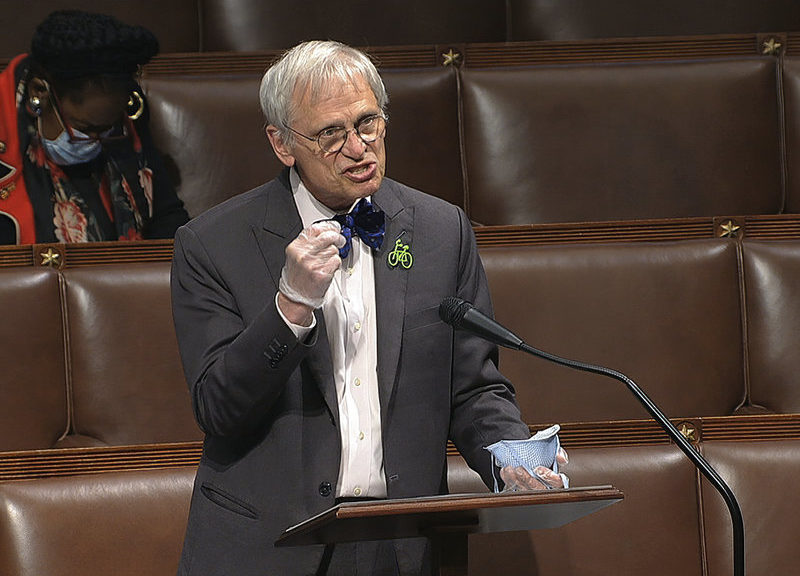 The House of Representatives has approved legislation that would decriminalize marijuana and seek to “address the devastating injustices caused by the War on Drugs.”
The House of Representatives has approved legislation that would decriminalize marijuana and seek to “address the devastating injustices caused by the War on Drugs.”
Friday’s vote in the Democratic-led House is the first time a chamber of Congress has voted on federal marijuana decriminalization. It has little chance of passing the Republican-led Senate, however.
The bill passed largely along party lines: 222 Democrats, five Republicans and Rep. Justin Amash, a libertarian, voted in support while 158 Republicans and six Democrats voted against.
The Republicans who voted for the bill are Florida Rep. Matt Gaetz, the bill’s co-sponsor, as well as Reps. Brian Mast of Florida, Tom McClintock of California, Denver Riggleman of Virginia and Don Young of Alaska. The Democrats against were Reps. Cheri Bustos and Dan Lipinski of Illinois, Henry Cuellar of Texas, Conor Lamb of Pennsylvania, Chris Pappas of New Hampshire and Collin Peterson of Minnesota.
“Millions of Americans’ lives have been upended as a result of convictions for possessing small amounts of marijuana, and the racial disparities in conviction rates for those offenses are as shocking as they are unjust,” House Majority Leader Steny Hoyer, a Maryland Democrat, said in a statement after the vote. “That’s why we passed the Marijuana Opportunity Reinvestment and Expungement (MORE) Act today.”
The MORE Act would remove marijuana from the Controlled Substances Act and eliminate criminal penalties for individuals who manufacture, distribute or possess marijuana. It also includes creating a process to remove prior convictions, known as expungement, and conduct sentencing review hearings for federal cannabis offenses.
The measure would also authorize a 5% sales tax on marijuana products to invest in services such as job training, legal aid and substance abuse treatment for individuals adversely impacted by the war on drugs. The tax revenue would also provide funds for small businesses loans and allow access to marijuana licensing and employment for economically disadvantaged individuals.


